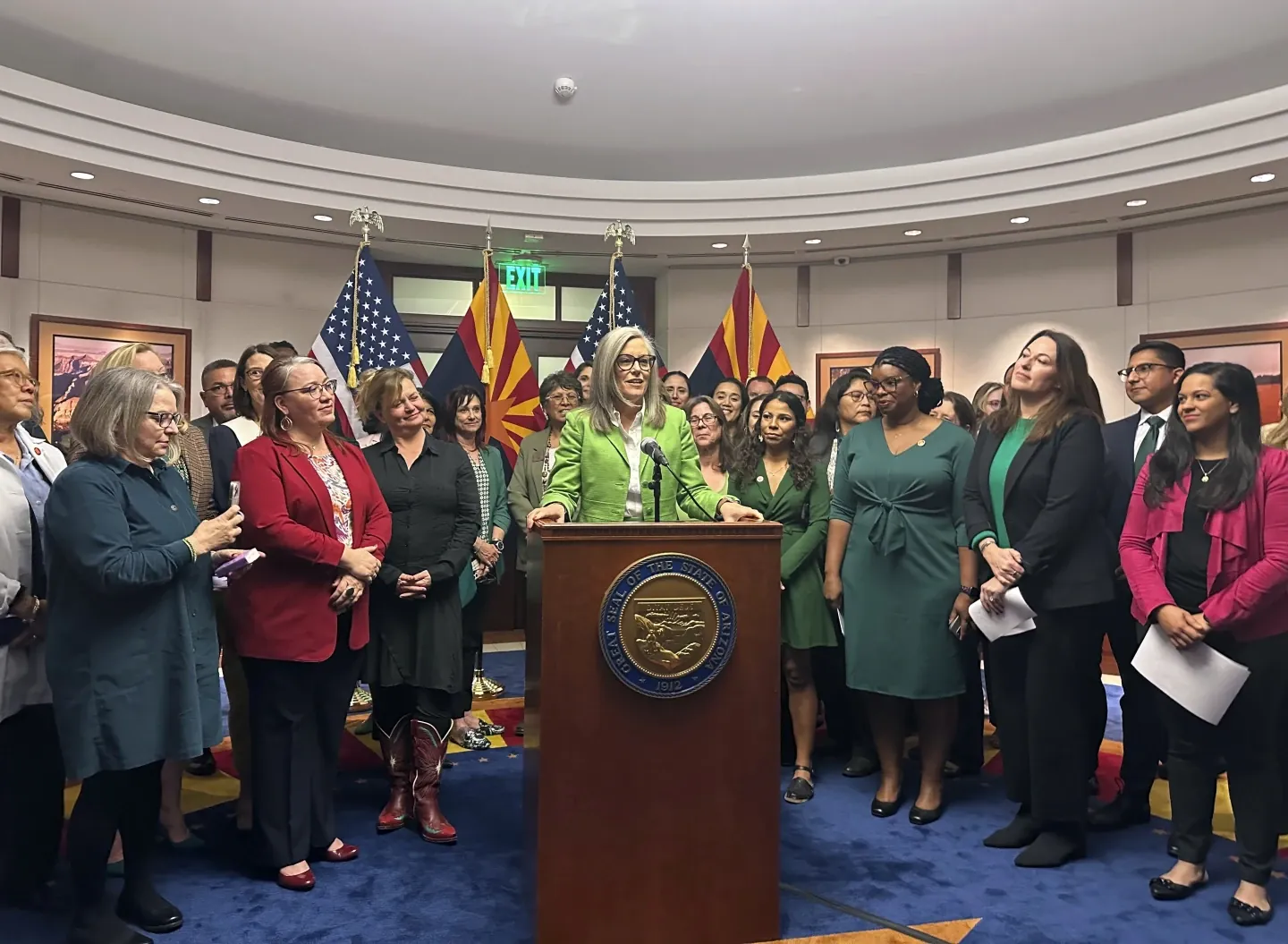Reproductive rights advocates have filed a lawsuit against Arizona to overturn a 15-week abortion ban. Voters recently passed a constitutional amendment aiming to enhance access to abortions up to fetal viability, which this ban contradicts.
The American Civil Liberties Union, Planned Parenthood, and the Center for Reproductive Rights have jointly filed a lawsuit in Maricopa County Superior Court. This legal action represents the local chapter of Planned Parenthood and two physicians, aiming to challenge a law that they believe infringes upon the fundamental right to abortion and individual autonomy of pregnant individuals in Arizona. This lawsuit marks the initial stage of their ongoing efforts to dismantle existing restrictive laws.
Republicans controlled the Arizona Legislature, passing a 15-week ban well before the US Supreme Court overturned Roe v. Wade in 2022. However, the ban did not come into effect immediately. Democratic Attorney General Kris Mayes has agreed not to enforce the ban during the ongoing lawsuit, according to spokesperson Richie Taylor.
In a statement on Tuesday, Democratic Arizona Governor Katie Hobbs expressed her belief that the ban should be eliminated from the books.
According to the statement, the speaker emphasized that the people of Arizona have expressed their strong support for reproductive freedom. They firmly believe that it is necessary to eliminate a ban that fails to include exceptions for cases of rape or incest. The speaker further expressed her satisfaction in seeing that the people of Arizona are actively taking steps to ensure the full enforcement of the constitutional protections they currently have.
The lawsuit aims to reverse the approved ballot measures , which could result in providers facing criminal charges if they knowingly or intentionally perform abortions after 15 weeks, unless it is a medical emergency. Doctors who violate the ban may also face consequences such as the suspension or revocation of their medical licenses.
“The amendment doesn’t completely erase all existing laws. Additional steps are required to fully implement the promise of the amendment,” explained Rebecca Chan, a staff attorney at the ACLU. “That’s essentially what this 15-week ban challenge is about.”
In the 2024 general election, Arizona joined four other states in voting to include the right to an abortion in their state constitutions. Similarly, in 2026, voters in Nevada passed an amendment to solidify their existing abortion rights in the state constitution, which will come into effect. Additionally, New York successfully passed a measure that prohibits discrimination based on “pregnancy outcomes.”
The momentum for the Arizona ballot measure increased following a landmark ruling by the state Supreme Court in April. The court’s decision allowed for the enforcement of a near-total abortion ban that had been adopted back in 1864. Following this ruling, a coalition of Republican and Democratic lawmakers united to seek the repeal of this law before its implementation.
The new measure aims to increase the availability of abortion services for pregnancies reaching fetal viability. Medical professionals generally consider viability to occur after 21 weeks, although the exact timeframe remains unspecified. Under this measure, abortions can be performed after viability if they are deemed necessary to protect the mother’s physical or mental well-being, or if they are required to save her life.
According to the U.S. Centers for Disease Control and Prevention, the majority of abortions take place in the early stages of pregnancy. In 2022, 93% of abortions nationwide occurred within the first 13 weeks. Note that this data excludes California and some other states, where there is a belief that a higher percentage of abortions could occur later in pregnancy.
The certification of the general election on Nov. 25 certification has paved the way for legal challenges to laws that contradict the ballot measure. One such law mandates that patients must undergo an ultrasound at least 24 hours prior to an abortion, with the choice to view the image and receive an explanation of its contents.
Following the passage of a ballot measure, Planned Parenthood affiliates in Missouri promptly initiated legal action. Their objective is to challenge the bans and other laws that restrict abortion in the state. The situation in Missouri is unique because there is a complete ban on abortion at all stages of pregnancy, and no clinics are currently offering the procedure. On Wednesday, there will be a hearing to address this issue.
Missouri’s Republican Attorney General, Andrew Bailey, has stated his intention to enforce certain abortion restrictions laws, despite the voter approval of a constitutional amendment that is expected to overturn the state’s near-total ban on the procedure.

